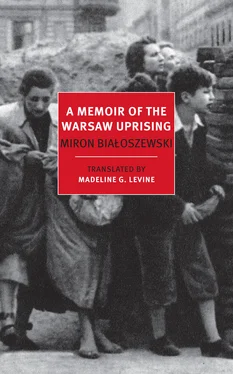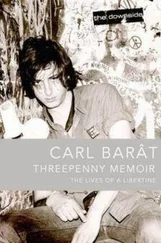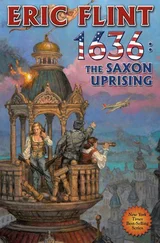Miron Bialoszewski
A Memoir of the Warsaw Uprising
MIRON BIAŁOSZEWSKI (1922–1983) was born in Warsaw, the son of a postal clerk. During the German occupation of Poland in World War II, he studied Polish literature in an underground school, though he never obtained any kind of degree. Not a combatant, he was deported to a German work camp following the Warsaw Uprising, escaped after a month and, as the war drew to its end, returned to his devastated city. Białoszewski worked as a journalist, writing poetry at night, though it was not until 1956 that his first volume of poetry, Obroty rzeczy ( The Revolution of Things ), appeared to great acclaim. Additional volumes of poetry and short prose texts followed, while Białoszewski also wrote plays for and acted with the collaborative and experimental Tarczyńska Street Theater. A Memoir of the Warsaw Uprising came out in 1970.
MADELINE G. LEVINE is Kenan Professor of Slavic Literatures Emerita at the University of North Carolina, Chapel Hill. Her translations from the Polish include The Woman from Hamburg and Other True Stories by Hanna Krall, Bread for the Departed by Bogdan Wojdowski, four volumes of prose by Czesław Miłosz including Beginning with My Streets: Essays and Recollections and Miłosz’s ABC’s , and a new English version of the collected stories of Bruno Schulz (forthcoming).
TRANSLATOR’S INTRODUCTION
THE RECEPTION of the original 1970 publication of Miron Białoszewski’s Pamiętnik z powstania warszawskiego ( A Memoir of the Warsaw Uprising ) by readers and critics in Poland and the Polish diaspora was divided. Understood by many as a major literary event thanks to the author’s bold rejection of unthinking nationalist fervor and powerful deployment of the norms of spoken language, the memoir was condemned by others as a blasphemous mockery of a revered moment in national history, the mockery made worse by the author’s rejection of any hint of rhetorical pomposity. The functional prosaic title of the book appears to promise a work of unambiguous content: a recounting of a major historical event — the Warsaw Uprising of 1944—as recollected by a participant in that event. But Białoszewski’s memoir is not the straightforward narrative its simple title suggests.
If we can divide memoir literature into two basic categories — one, the public figure’s review of events in the public domain, often written with an eye to perpetuating a particular interpretation of those events, and the other, the more private self-revelations of the memoirist who seeks in the past a clue to his own personality and career — we can say that Białoszewski’s memoir partakes of qualities from each of these categories. His subject is a major historical event, but he was not a public figure when he participated in it. When he came to write his memoir some twenty years after the fact, his fame was as a private man of letters, yet his return to the past is not primarily a search for self-knowledge nor an effort to reveal to the public the sources of his art. Rather, A Memoir of the Warsaw Uprising is a nonfictional literary work that is deeply revisionist both in its presentation of the Warsaw Uprising and in its approach to the memoir genre.
The author of this controversial memoir was born in Warsaw in 1922 and made his home there until his death in 1983. Białoszewski was seventeen years old when the Germans invaded Poland on September 1, 1939, and twenty-two during the Warsaw Uprising. He began to write during the German occupation. These bare biographical facts are shared by a generation of Polish writers who were born during the 1920s and who came to maturity during the Second World War. They grew up during Poland’s short-lived era of independence, which spanned the years between the Treaty of Versailles and the Nazi invasion. The spirit of national revival that marked the early years of the Polish Republic faltered under the anxious uncertainty of the 1930s and collapsed during the more than five years of occupation.
The crucial experience in the lives of the generation to which Białoszewski belongs was the traumatic loss of a normal youth during a period when violent death was an ever-present possibility. Old enough to have absorbed the traditional Polish Catholic patriotism, members of this generation emerged from the war distrusting the tradition-sanctioned slogans and philosophies they had been raised on, substituting for positive beliefs an attitude of moral relativism. The grim experiences of their young adulthood left an indelible mark on the literary output of this generation, which includes, among other writers familiar to readers of their works in English translation, such giants of twentieth-century Polish letters as Tadeusz Różewicz and Tadeusz Borowski. Białoszewski bears a family resemblance to these authors in that, like them, he is obsessed with the fragility of civilization and displays little if any faith in the durability of cultural and moral codes. Like them, he expresses his disaffection by rejecting the traditional standards of aesthetics in order to seek a more appropriate style for his fundamental skepticism.
Throughout Białoszewski’s poetry and prose (the boundaries between these two categories are often blurred) there is a consistent thematic concentration on simple objects and personal events that are outside the mainstream of traditional poetic subject matter.[1] His poems in praise of such domestic articles as slotted spoons, stoves, chairs, and quilts are typical of this attitude. His poetic iconoclasm, manifested by a disdain for conventional language as well as subject matter, aroused highly partisan feelings among Polish critics and, on more than one occasion, the censor’s insistence on adherence to grammatical correctness.
The language of his memoir, like that of his poems, is unpolished, abrupt, colloquial; the syntax is fragmentary and distorted. Białoszewski plays with language, not, it would seem, with the aim of renewing the poetic medium but out of an abiding lack of faith in the received literary language and outright rejection of a politicized bureaucratic dialect— nowa mowa , the Polish communist version of Orwell’s Newspeak. His poetics and the outlook it expresses are minimalist, demanding no overarching traditions or philosophy, nothing, indeed, beyond the concrete realities of daily life and speech. The following poem, in Czesław Miłosz’s translation, is characteristic:
AND EVEN, EVEN IF THEY TAKE AWAY MY STOVE
My Inexhaustible Ode to Joy
I have a stove
similar to a triumphal arch!
They take away my stove
similar to a triumphal arch!!
Give me back my stove
similar to a triumphal arch!!!
They took it away.
What remains is
a grey
naked
hole.
And this is enough for me;
grey naked hole.
grey naked hole.
greynakedhole.[2]
During the years when he was beginning to achieve fame as a poet, Białoszewski was well-known in Warsaw as the director of a small avant-garde theater that was housed in his two-room apartment. There is a striking description of this Teatr Osobny (Private Theater) by the American columnist Joseph Alsop, who visited Białoszewski in the spring of 1959:
Nothing quite like this apartment exists anywhere else in the world. Every single piece of furniture has been gravely maimed or wounded at some time in the past. Abstract paintings, strange and menacing constructions of wire and masking tape, great numbers of fragments of Polish baroque church-sculpture, two damaged but still magical Polish-Byzantine ikons, the remnants of a beautifully tender late Gothic altar piece — all these and many other objects are hung or strewn about.[3]
Читать дальше












